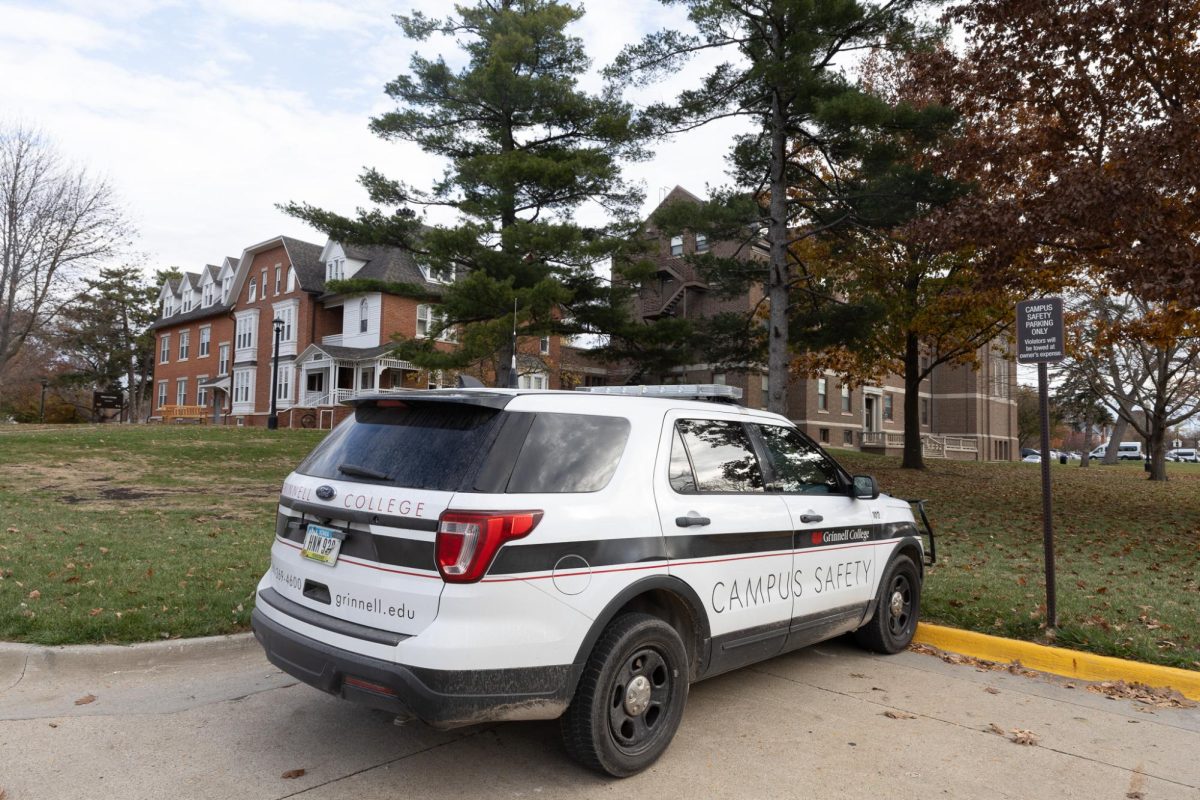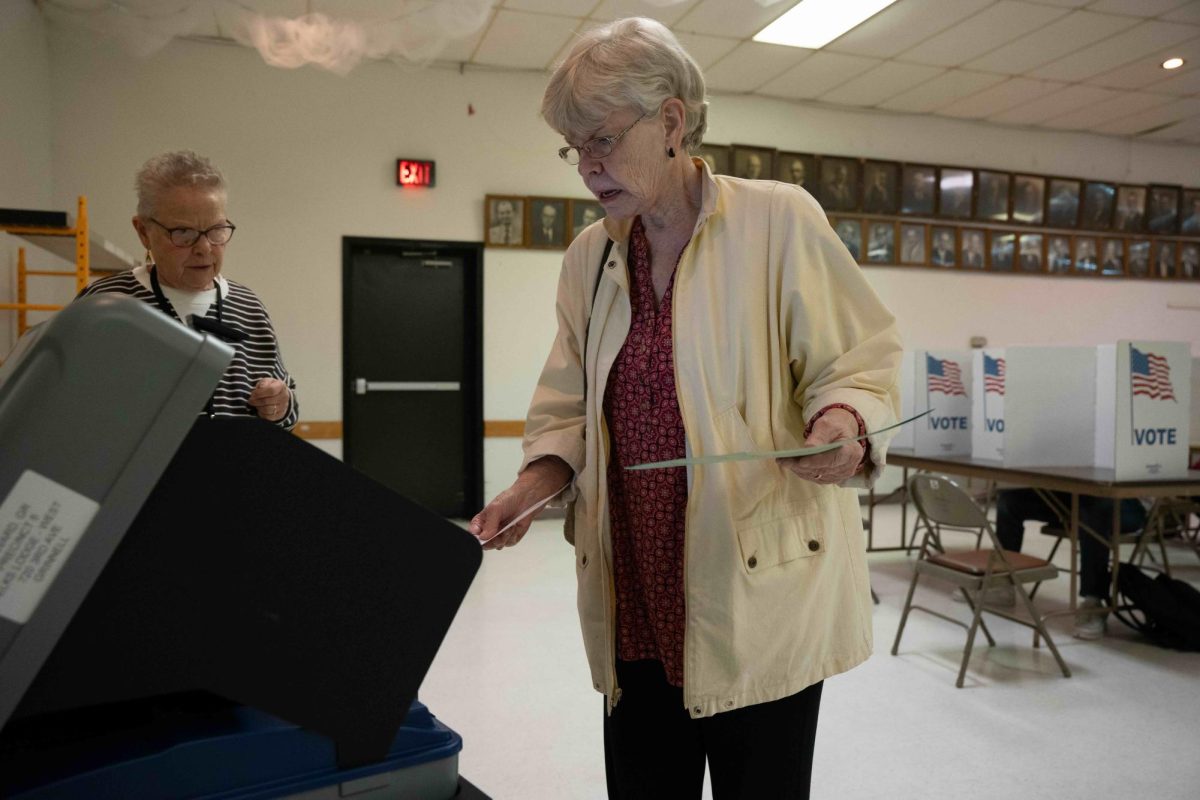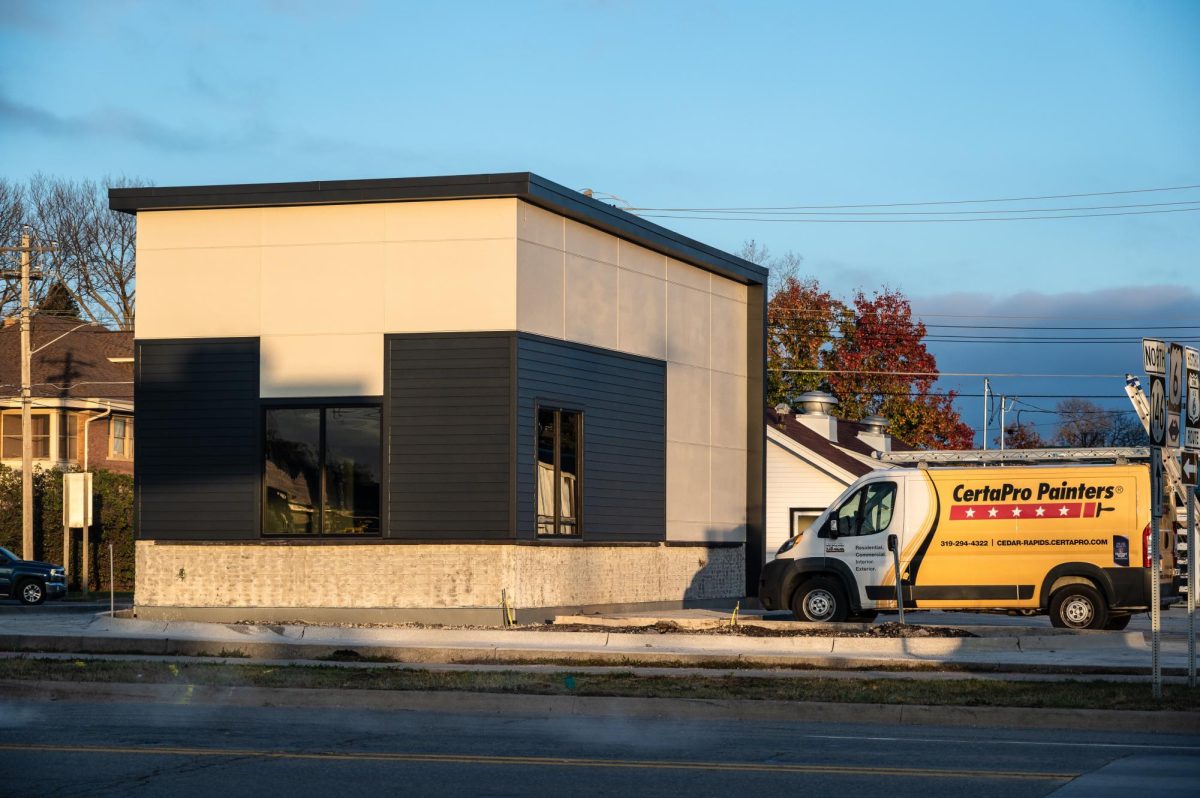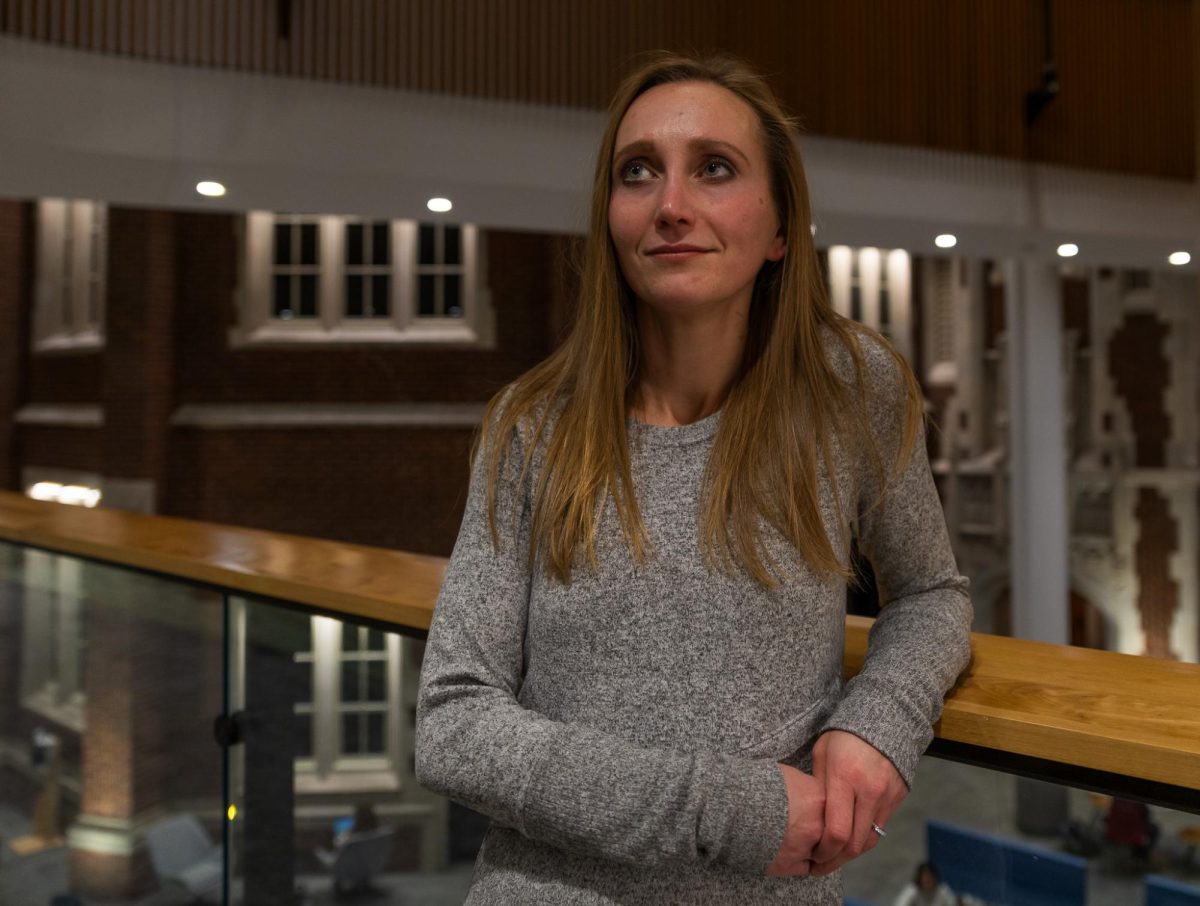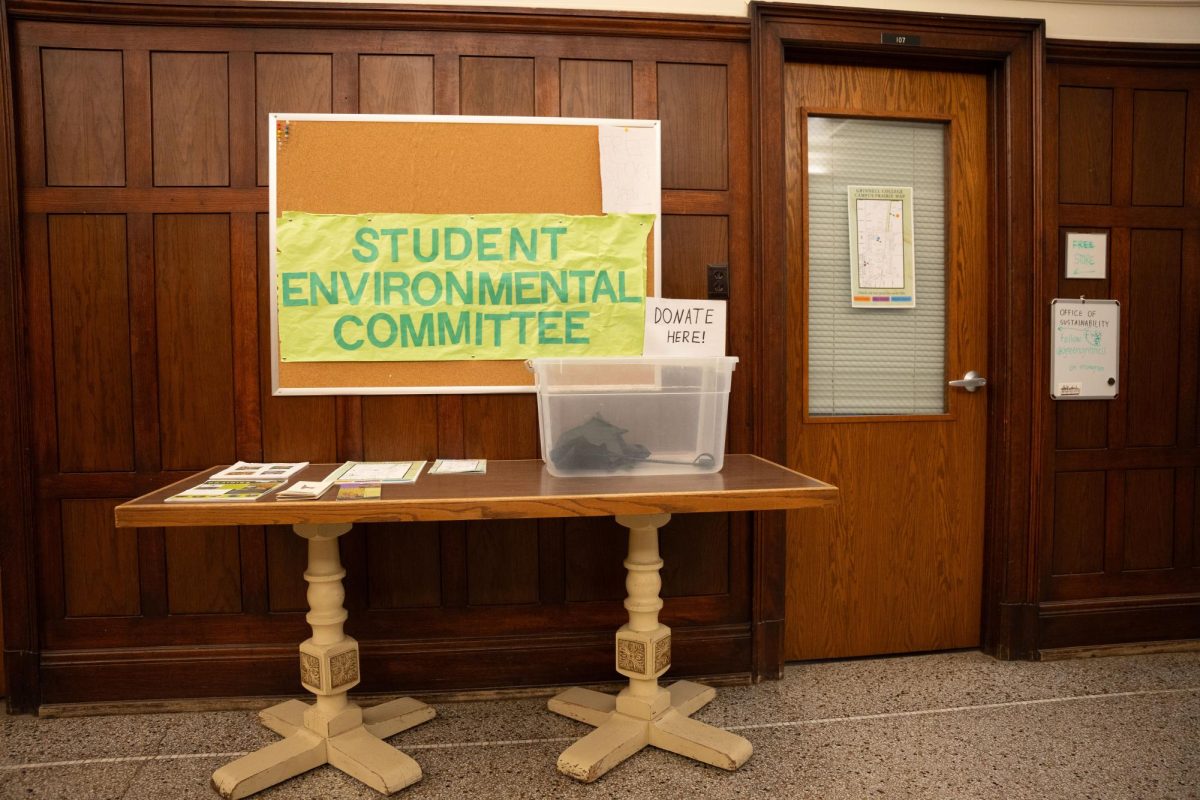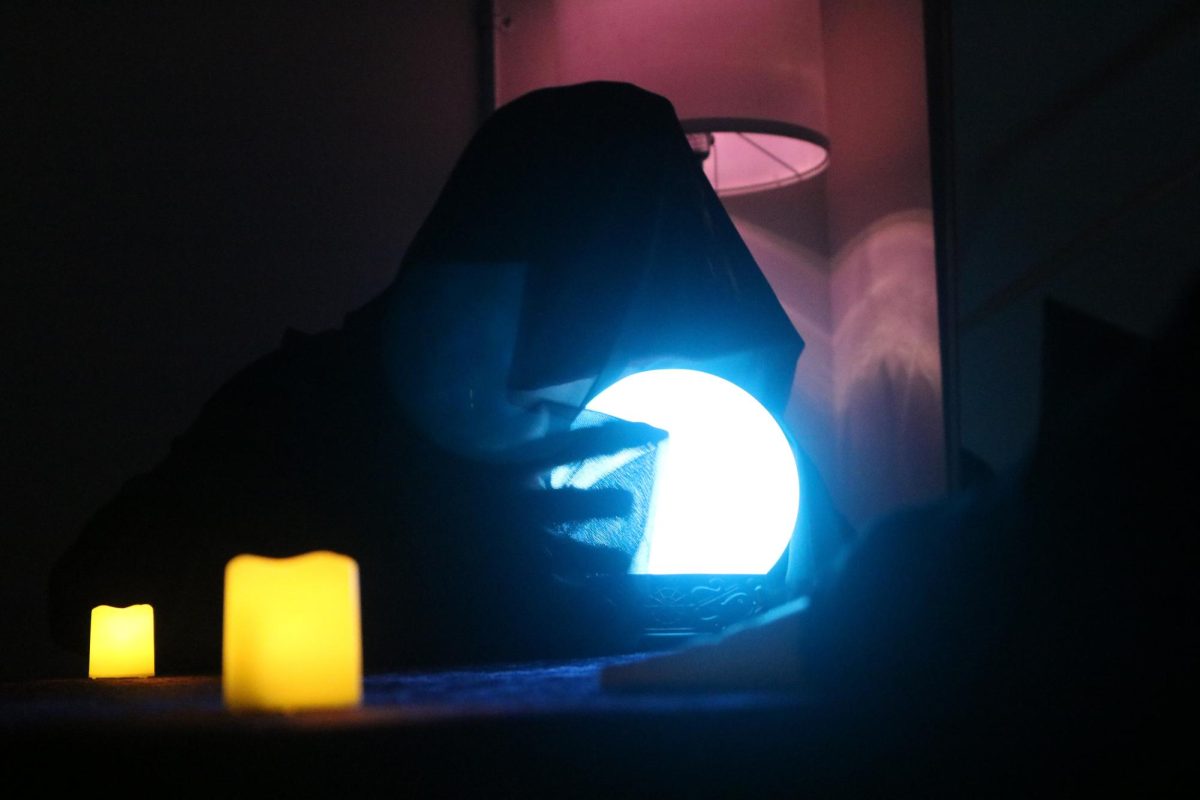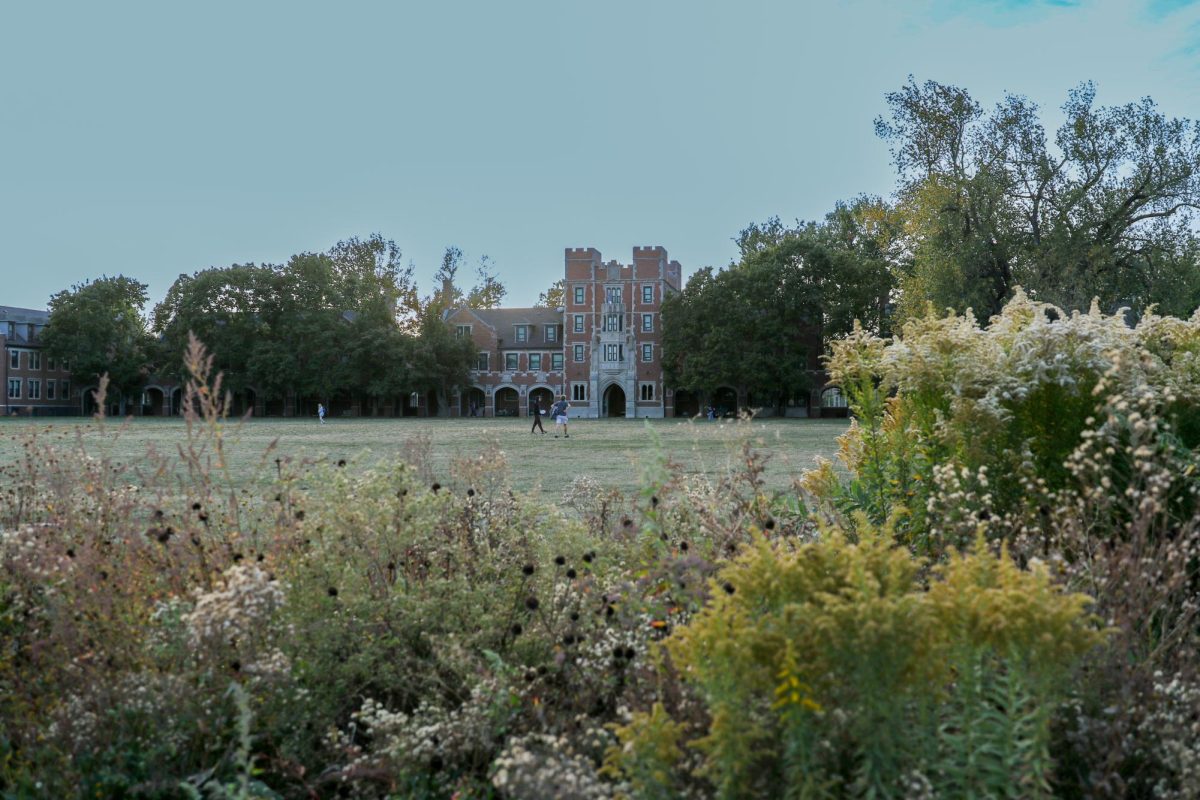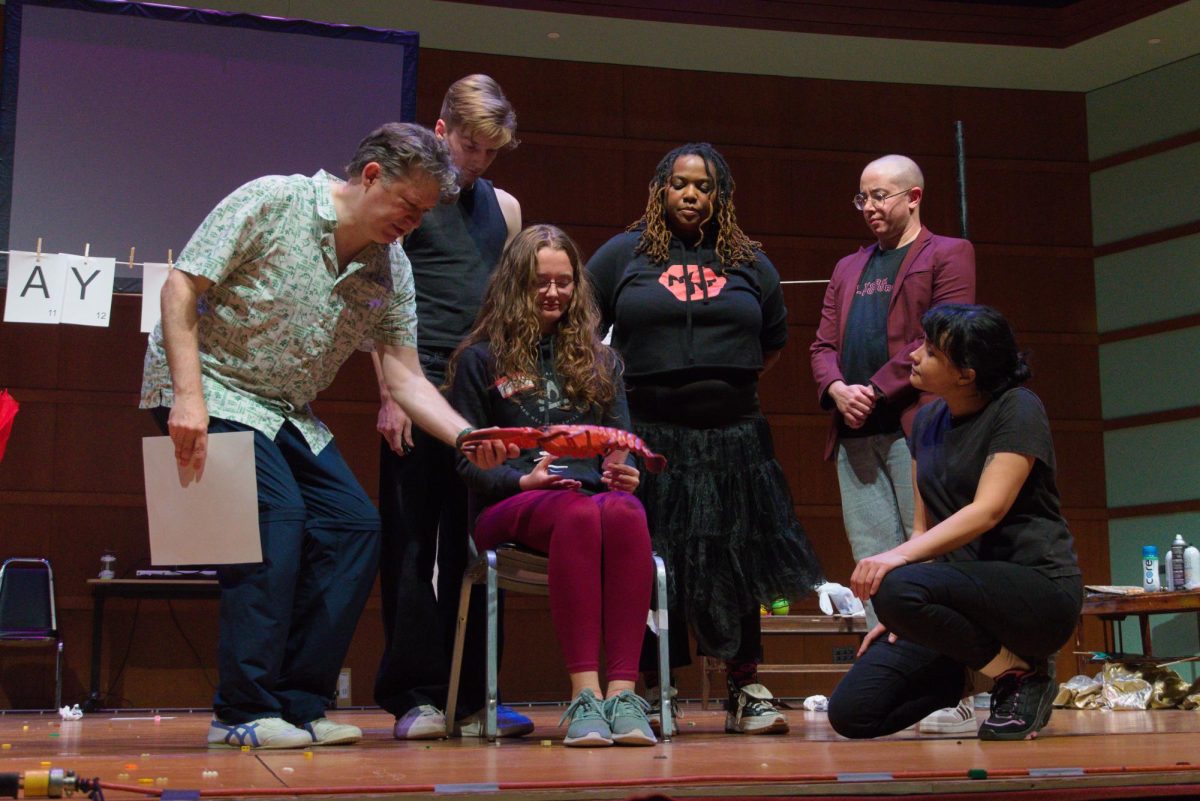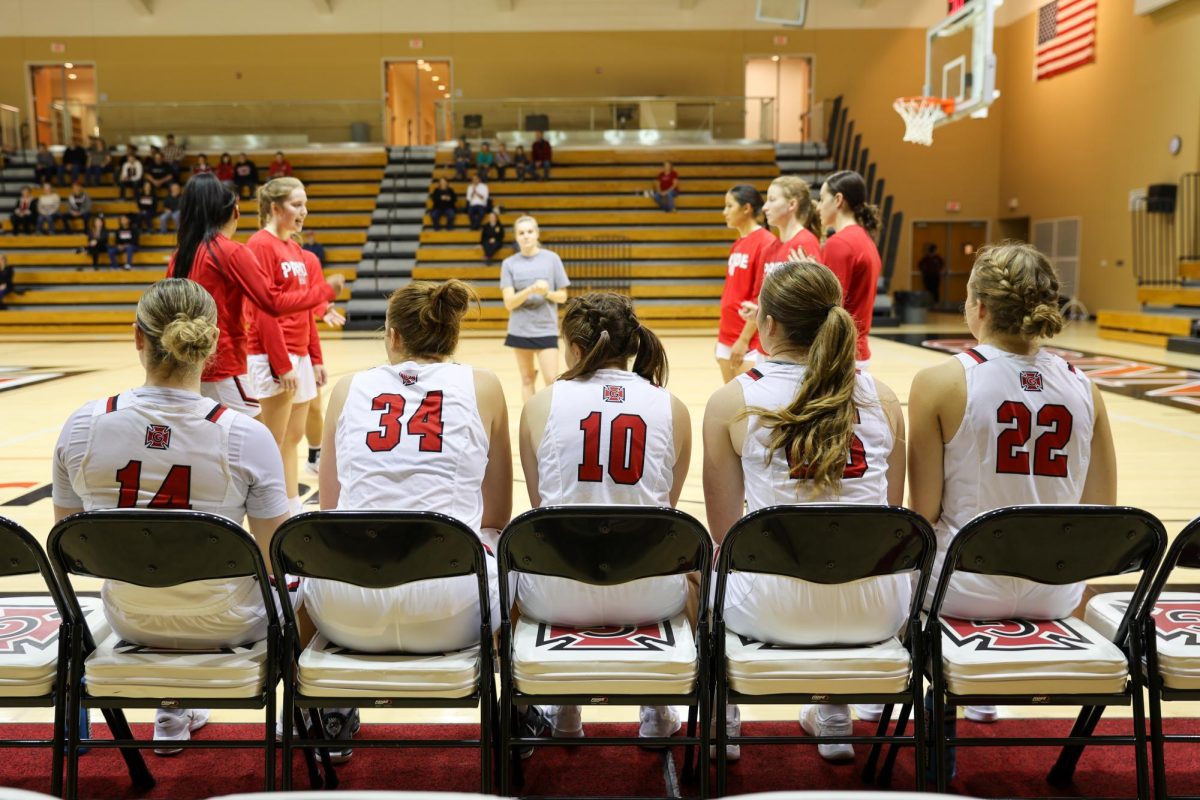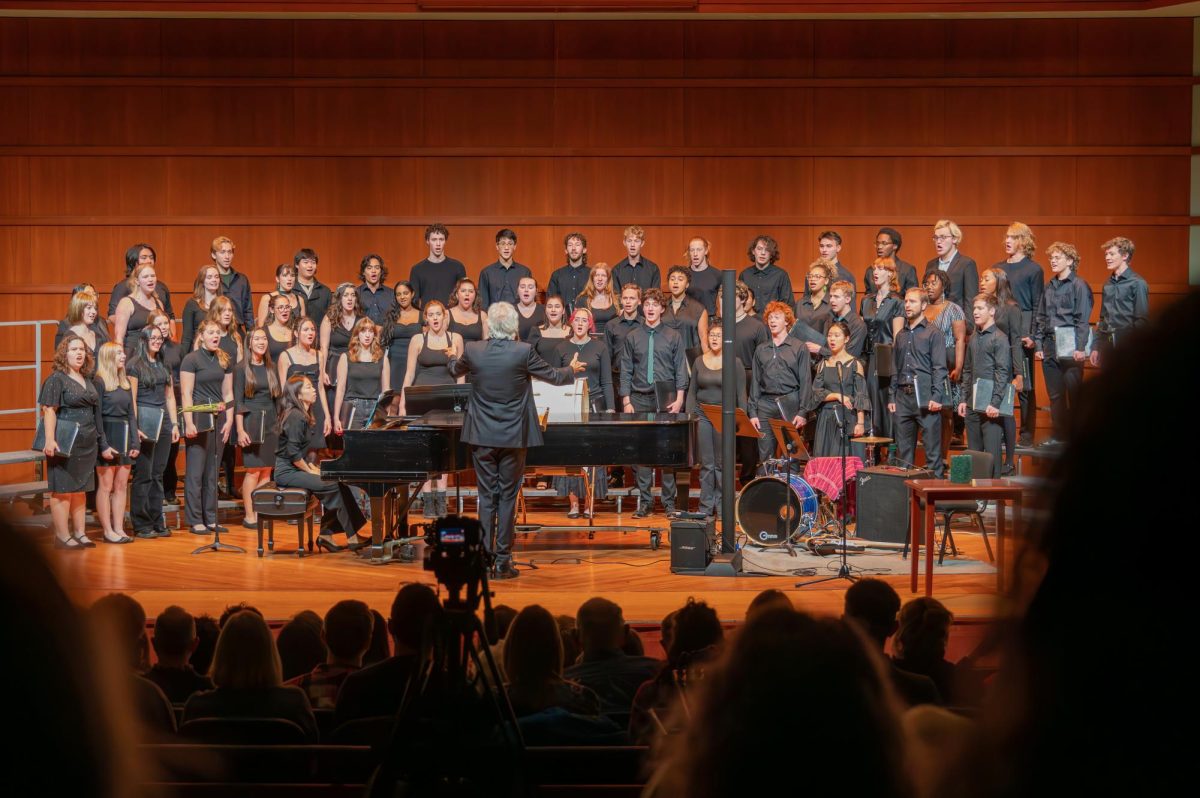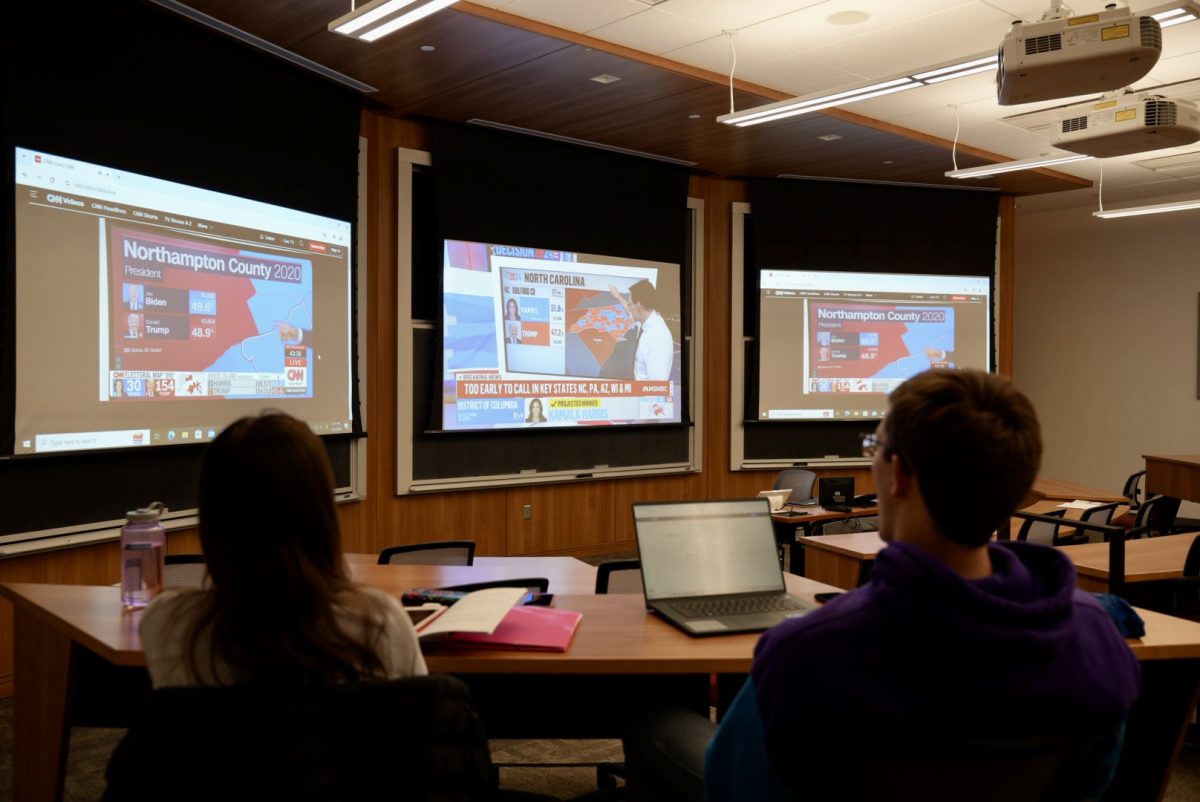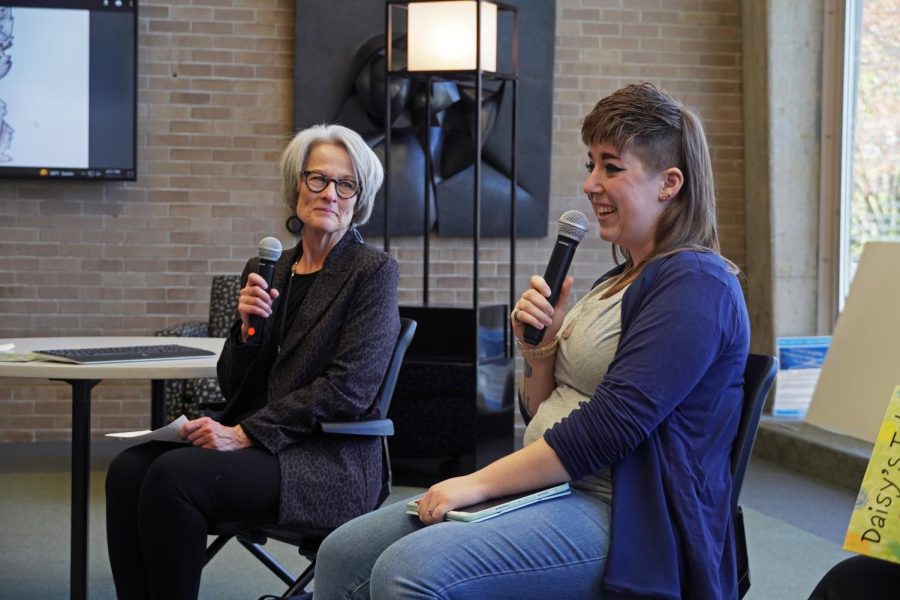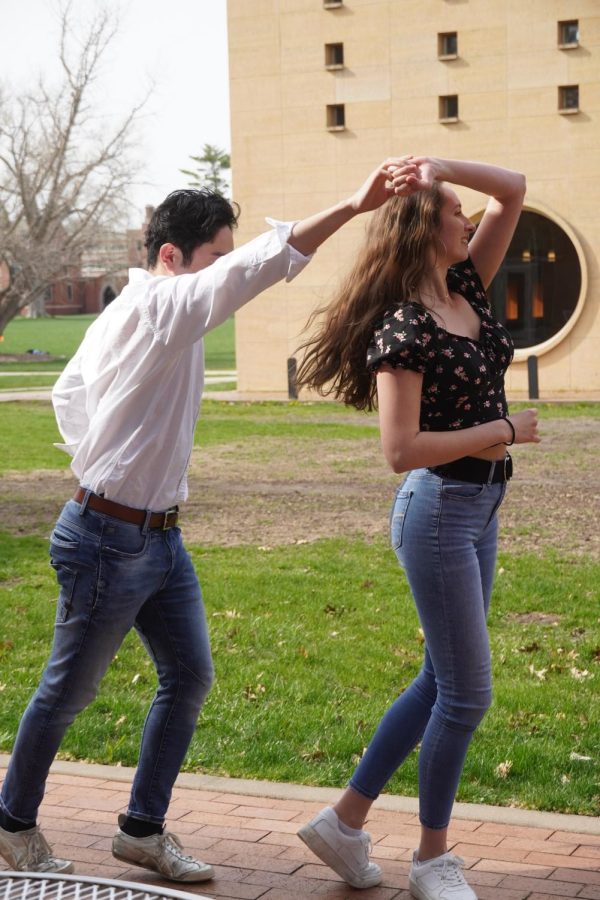While the first few weeks of the school year are always the hottest, the heatwaves at the beginning of the semester became severe enough that the College took measures to help students cope with the heat. These quick fixes are only the College’s immediate plans to combat the heat as the College’s larger plan is to renovate all the dorms by 2030 to include air conditioning.
Zoe Mahler `23, who lives on the third floor of Read Hall, had a difficult time dealing with the extreme heat at the beginning of the semester in which a heat advisory for Poweshiek County warned that the heat index could be as high as 100 to 105 degrees Fahrenheit. Mahler’s concern was not only for their own well-being but also for their emotional support dog, Kim. Mahler’s four-year-old rescue dog overheats easily, and knowing that brutal heat awaited him, he would refuse to walk up the stairs to the dorm room.
“There was not a point he wasn’t panting,” said Mahler. “He couldn’t sleep very well, just kind of unhappy, and he did not, he would not, want to go up the stairs when we walked back in. He would refuse to walk back up the stairs … so I had to carry him up a lot.”
For Mahler and their dog, the dorm room was about 4 to 5 degrees hotter than outside, and fans weren’t enough. They constantly had to worry about where and when they could take their dog out of the room to let him cool off.
“It’s making being here very difficult,” they said. “A lot harder than it should be and making me more concerned about my dog when he is supposed to be helping me.”
Student disability resources eventually did reach out to students with emotional support animals in unconditioned dorms and provided them with crates so that their animals could stay in the air-conditioned lounges throughout the day.
“We wanted to make sure that those folks have a place to go and so we have opened up the lounges to say you can crate your animals, emotional support animals, and take them to the lounge for five to 10 minutes a day,” said Dennis Perkins, department head of residence life.
This provided a quick solution for the distressed animals but didn’t reach the core issue – the simple lack of air conditioning in most of the dorm rooms.
“I would love if they actually put central air conditioning,” Mahler said. “That’s the solution and also just it’s literally too hot for anyone, including myself, it was awful. It’s not just about my dog. It was like I can’t sleep at night because I’m sweating so much. I think the other thing is it’s never going to get better. It’s never going to get cooler [in terms of global warming] and only going to get worse.”
East Campus dorms are the only fully air-conditioned campus housing. Out of 19 residence halls, only five have central air conditioning. Nameera Muhammad Dawood `23, the former SGA administrative coordinator, said she noticed that some students in those unairconditioned residence halls were having trouble with the extreme heat. She sent out a survey to gauge how students were dealing with the heat and who needed a fan.
“The biggest thing I was alarmed by is people reporting that they can’t sleep in their rooms,” said Muhammad Dawood.
In an attempt to combat the heat, SGA and Residence Life combined forces to provide fans for students that needed one and couldn’t afford it. However, the budget ended up $500 short of accommodating everyone that requested one.
Residence life also announced that students were allowed to sleep in the air-conditioned HSSC and JRC as a short-term solution. Cots were made available for students to sleep on inside the buildings, but some students were removed after being told they could not sleep there.
“We’ve been working with Campus Safety to make sure, and I know there was some glitches here and there. I think some students were asked to leave from the HSSC one morning,” said Perkins.
The problem was also brought up about how students would maintain social distancing while sleeping in the HSSC or JRC.
“Are people supposed to sleep in their masks?” Muhammad Dawood questioned. “What is the social distancing? Are there any rules about how this is supposed to work?”
There has yet to be a permanent fix for the extreme heat in the dorm rooms, and as the temperatures lower, the issue will subside until they rise again. The college is looking into future plans for all dorms to be renovated by 2030.
“Norris and Loose will be the first to [be renovated] starting next summer,” said Perkins. “So, Norris will be offline from May of `22 until January of `23. So, they do it pretty quickly and then Loose is going to go next, and then there is Main.”
The renovation plans, however, do not include air conditioning for all the dorms since air conditioning is used minimally during the year due to the Iowa climate.
“We are probably not going to do air in all of them because again, it’s the Midwest. You know you have a couple [of] weeks where it is super-hot and then it will cool off, but the accommodations will be much better,” according to Perkins.
While students wait for the dorms to be fully renovated, the college is planning a quick dorm improvement for South Campus in which screens will be added to the windows. This will allow for students to open their windows and cool down the room without having to worry about creatures flying in.
“South Campus … [has] no screens in the windows so they [students] don’t want to open them because things like bats fly in. So we’re actually going to get those outfitted with screens right now. That way they can have the window open, have that cool breeze come through when it’s cool at night,” said Perkins.
